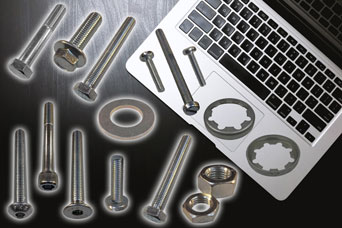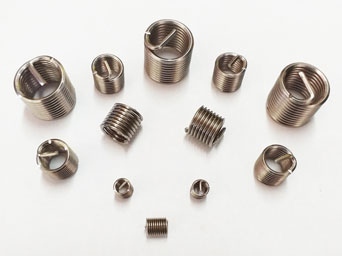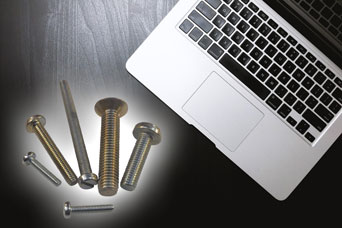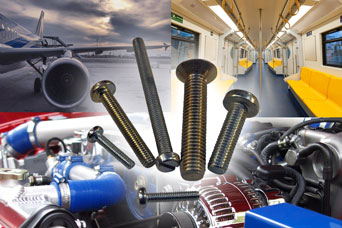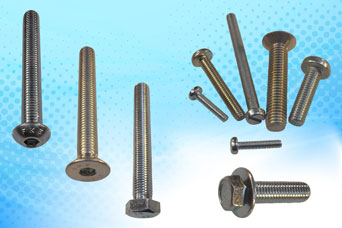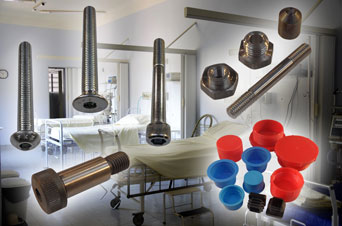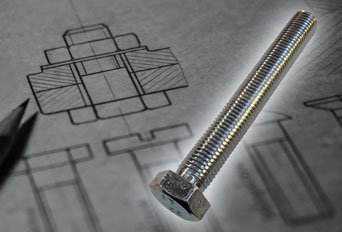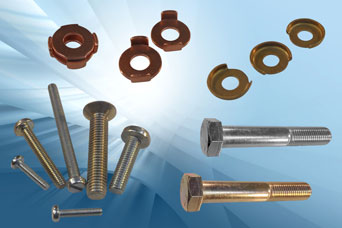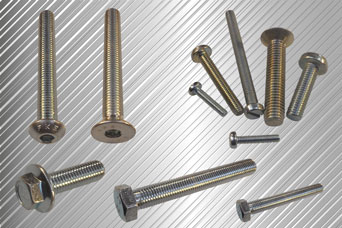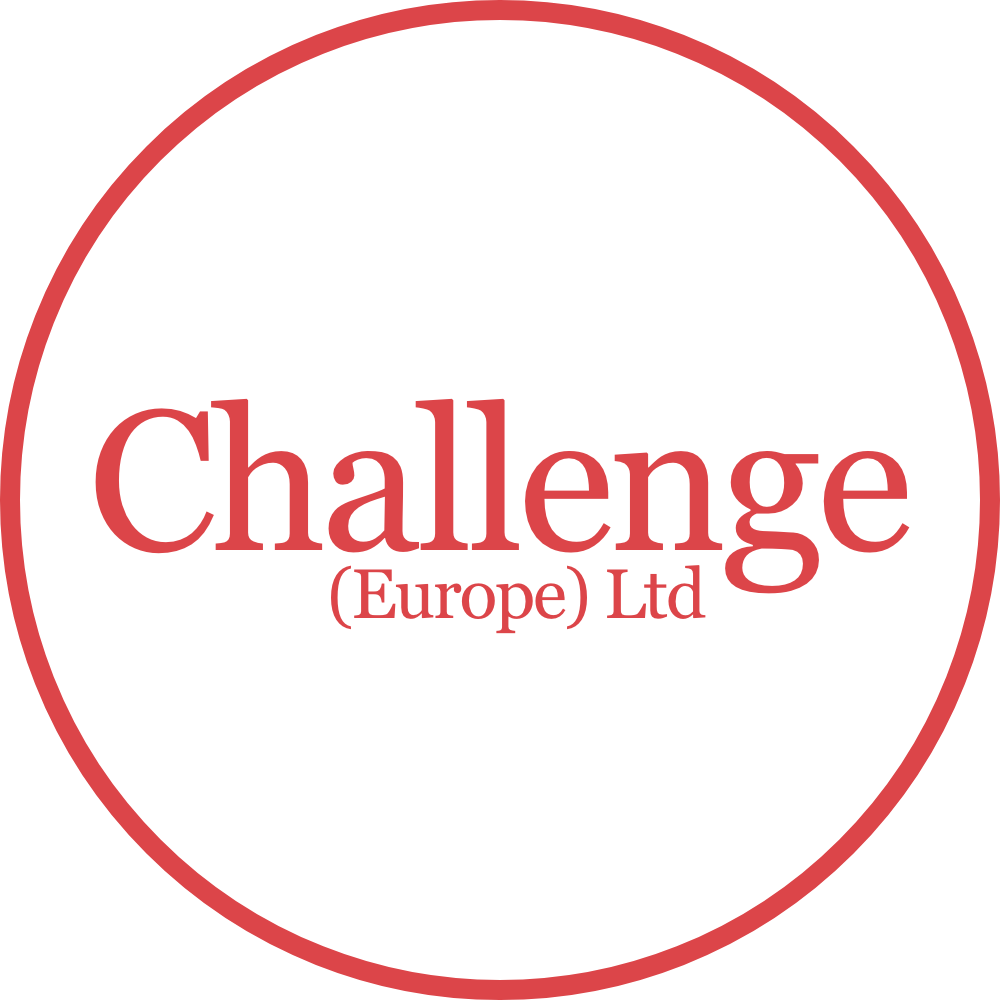Machine Screws represent a technology that is now conventional, so that here at Challenge Europe we believe it is interesting to ask “what is their future?”
We have already seen many developments in drives/head configurations for automated production such as Hex drives and other socket screws, leading on to the more modern Phillips, Pozi and star drives, e.g. TORX, developed with a view to self-centring so that they will sustain torque loadings of automatic drives and with the further aim of being self-aligning when inserted.
We already have in the market an extensive selection of different thread pitches/multiple thread screws – custom screws – many diameters and head styles. Including threads for different materials such as steel, soft metals, plastics, zinc die castings, aluminium castings and so on.
More sophisticated driver forms can now be readily produced with advanced production machinery, leading to a great variety of head forms for differing purposes, e.g. wafer heads – thin and large diameter to spread the load over the substrate, which may be a thin sheet or soft material.
Other common forms include Narrow/small dia heads for confined spaces, Dome heads for aesthetics, Countersunk heads for smooth surfaces, Vandal-resistant heads for security, Integral washers, Pre-assembled sealing washers, Load spreading heads and Anti-vibration, e.g. serrated flanges.
A major trend in recent years has been the “right to repair” movement, from the USA to Scandinavia and is something that the fastener industry has supported, perhaps inadvertently, throughout the industrial revolution to the present day. Mechanical fixings have always inherently provided the option to disassemble and repair as opposed to bonded assemblies which are virtually unrepairable.
Mechanical fasteners in one form or another have been in existence almost from the cave man days as a system that is available at low cost to anyone with only simple tools. Latterly developments have enabled them to be used successfully in most types of assembly environments and at the same time satisfy the requirements of safety, quality and cost. They continue to be a simple solution to assembly problems providing a system of positive connection with low risk, which can be easily disassembled. They have no thickness limitation, are not environmentally sensitive and provide through-thickness reinforcement, with low sensitivity to peel stresses and have no major residual stress problems.
Above all they are simple – joint configuration is simple, manufacturing processes are simple, inspection is simple and maintenance is simple. Simplicity can be a major advantage in most applications and continues to be so in aiding users to extend the life of their equipment. The whole point of right to repair is to cut through the “design to scrap culture” and the expensive “return to manufacturer” policies that go with it.
New EU regulations take the lead on this requiring that from 2021 appliances will need to be both longer lasting and with spare parts available for 10 years. The point being that right to repair seeks to reverse the way that repairs have been taken out of the hands of the user in order to enforce more expensive solutions provided by the manufacturer. The philosophy is that it should be possible for consumers to repair cheaply – from washing machines to tractors – from software to mechanics – and threaded fasteners are a significant contribution to this approach.
Simplicity however does not mean they are incapable of sophistication with major advantages over chemical fastening adhesives. For example, threaded fasteners are commonly used with a torque adjustable closure force permitting pre-loading of the joint to allow it to adapt to variable loads from engines to couplings.
Similarly, the structural integrity, strength and security of mechanical fasteners can be designed to encompass the needs of vandal-resistance, to accommodate the extreme loads of vandal attack and to resist tools. In our drive for the new it is easy to forget the advantages of the old technologies.
With a mechanical fastener, when it is fixed, it is fixed and with a little thought it stays fixed. You can have confidence in what you feel when you fit it and what you see when you inspect it.
Given all these benefits and the driving forces of reducing lifetime cost, we foresee a strong trend of continuing evolution to meet major market requirements focused on:
- Better production technologies leading to better quality, greater accuracy, cleaner execution, reduced wastage, lower cost.
- Higher performance through use of higher spec materials, better finishes, superior insertion and drive capabilities, coupled with development of new thread forms to suit different materials and applications.
As discussed elsewhere, new thread forms are in development, but do not seem to have mass market utility as yet.
This has been the story of machine screws so far and we can only see it continuing as new industries of personal transit, renewable energy and recycling continue to develop new requirements with ever-lower energy use.
Clearly the threaded fastener industry continues to be vibrant with evolutionary growth based on their simple functionality at low cost.

